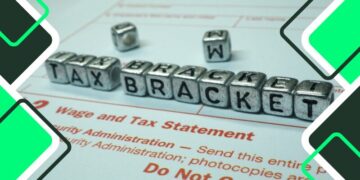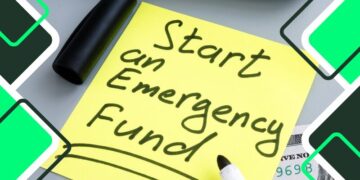How do credit cards work?

Credit cards are a popular way to make purchases, pay bills, and help manage debt. They are convenient, and many offer the chance to earn rewards, among other benefits. This small plastic card allows you to borrow money from a financial provider.
It operates as a form of revolving credit, where the cardholder can spend up to a pre-set limit and repay the borrowed amount by the due date of the bill. Credit cards are widely used to simplify purchases, bill payments, and debt management, offering convenience and security in transactions.
In addition to their practical function, credit cards can be effective tools for building and maintaining a good credit score. This score reflects the user’s reliability in meeting financial obligations. Responsible use, including timely payments and staying within the credit limit, can lead to a positive credit score, making it easier to obtain future loans and financing.
However, a credit card should not be seen as free money. Interest charges may apply if the balance is not paid in full by the due date, and the card’s limit must also be respected. Responsible and mindful use is crucial to avoid debt and ensure that the benefits of a credit card are effectively enjoyed.
Some initial terms
- Annual fee: Charged once a year for using the credit card.
- Balance: The amount of borrowed money that you haven’t repaid.
- Credit limit: The maximum amount you can borrow.
- Credit card network: Authorizes and processes credit card transactions.
- Interest/APR: The price paid to borrow money, usually stated as an annual rate.
- Issuer: The bank or financial institution that provides the credit card.
- Minimum payment: A percentage of the balance plus accumulated interest and fees.
How does a credit card work?
- You swipe, insert, or tap your card on the reader when making a purchase.
- The merchant contacts the issuer to request authorization.
- If approved, the transaction is completed, and the money is transferred.
- At the end of each billing period, you receive a statement with your transactions, total balance, and minimum payment.
- If you don’t pay the full balance, the issuer will charge interest based on the APR and the remaining balance.
In summary, this is how a credit card works. However, it’s always important to understand the mechanics behind your card to use it responsibly.
Credit card mechanics
- Billing cycles
When you use a credit card, you are essentially delaying payment for your purchases to a later date. But when exactly should you pay? This depends on your bank’s billing cycle. After each cycle, the bank compiles all your transactions and sends you a statement with the outstanding balance. From there, you need to make the payment by the due date.
- How interest works
Many people are hesitant to use credit cards due to interest. However, interest is the fee you pay to the bank for delaying payment on your purchases or for borrowing money. In short, it’s the cost of postponing repayment of the outstanding balance. If you pay your bill in full within the specified period, no interest will be charged. If only part of the balance is paid by the due date, the remaining amount will start accruing interest.
- Fees
In addition to interest, many card issuers charge an annual fee to keep the card active. This fee can impact the value of rewards offered by the card, so it’s important to consider it when choosing a card. Some issuers offer a reduced or waived annual fee for the first year. You should also be aware of other potential fees, such as:
- Balance transfer fees (for moving debts from another card to the current one).
- Cash advance fees (for cash withdrawals).
- International transaction fees (for purchases outside the country).
- Late payment fees.
- Returned payment fees.
- Bounced check fees due to insufficient funds.
How are credit cards different from other cards?
Credit cards differ from other types of payment cards primarily by allowing money to be borrowed and repaid later. With a debit card, the amount spent is directly deducted from your checking account, without generating debt. In contrast, a credit card balance can be paid in full or carried over to the next month, allowing for installment payments. The key difference between credit and debit cards lies in the source of funds.
Credit cards enable users to borrow money, which can affect their credit score, while debit cards only access funds already available in the bank account, without directly impacting credit scores. Another common type is the ATM card, used for withdrawals and deposits at ATMs.
Thus, credit cards offer greater payment flexibility but require more financial responsibility.
Types of credit cards
Basic credit cards
These cards offer simple features without many additional benefits. They may include lower interest rates and waivers on annual fees. There are several variants:
- Low interest: Offers a low interest rate, either permanently or temporarily, ideal for those who carry a balance.
- Balance transfer: Allows you to transfer debts from another card at a reduced interest rate, helping to consolidate debt.
Rewards credit cards
These cards provide benefits in exchange for your daily spending, such as cashback or points for travel:
- Cashback: Returns a percentage of your spending.
- Travel: Accumulates points or miles that can be redeemed for flights and other travel rewards.
Special credit cards
These offer specific rewards or advantages for certain categories:
- Business: Provides benefits for corporate spending.
- Student: Designed for young individuals with limited credit history.
- Store: Offers discounts at specific retailers.
- Gas: Provides discounts on fuel.
Other types
- Prepaid: Must be loaded with funds before use and is ideal for building credit.
- Unsecured cards: Do not require a deposit, such as personal and business cards.
- Secured cards: Require a cash deposit as collateral.
Tips for using a credit card
Credit cards can harm your finances and credit if used irresponsibly. Keep these tips in mind to ensure your credit card helps improve and organize your finances:
- Avoid credit card debt by setting and sticking to a budget. Make sure your spending stays below your income.
- Try to pay at least the minimum on time every month. However, ideally, pay off your entire balance to avoid interest and fees.
- Use your card for everyday purchases. You may need to buy items at gas stations and grocery stores, and many cards offer rewards for these purchases.
How to apply for a credit card
Applying for a credit card is easy:
- Pre-qualify: Take advantage of pre-qualified offers that can reduce hard inquiries.
- Fill out the form: Provide basic information and estimate your income.
- Authorize the hard inquiry: Give permission for the review of your credit history.
- Receive a decision and activate if approved: The issuer will send you a decision within 30 days, and if approved, you will receive the card by mail.
Now, with this information, visit our website and choose the best option for your finances.
Related content

Understanding tax brackets and how to minimise your tax burden

The Risks and Rewards of Investing in ETFs

10 Smart Investments for Young Australians in 2025

Emergency Fund: How to Start and What to Do

How to Take Advantage of Tax Benefits in Australia
